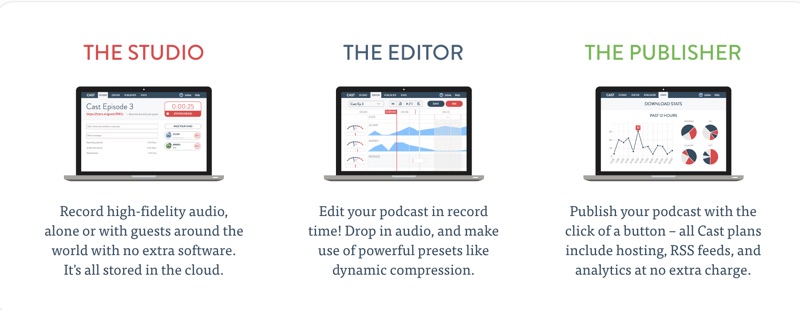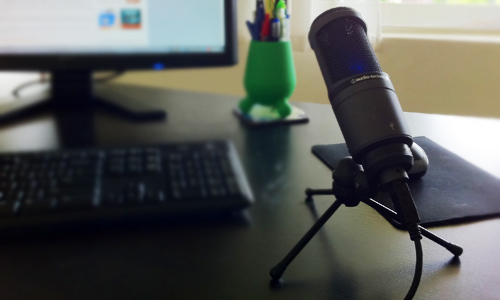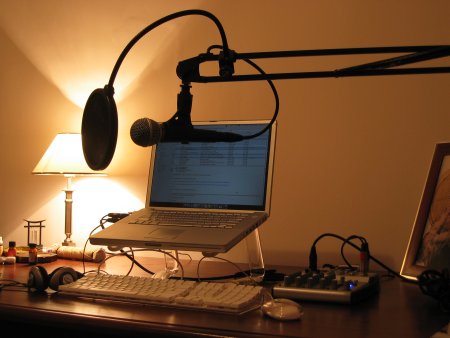
By Gadjo Cardenas Sevilla
Podcasting has become a popular means for people to share their interests with the world at large. If you have an interesting topic or area of focus, can manage to discuss this in an interesting manner then podcasting can be for you.
A podcast is a live or recorded audio or video segment that is shared or disseminated through the Internet. Most audio podcasts are downloadable audio files which can be listened to on PCs, smartphones or tablets.
There are countless podcasts out there discussing any topic you can imagine. Some of these are syndicated like radio shows and others are very independent. Some podcasts have high production value and sound like professional radio shows and this is because a lot of radio personalities have adopted podcasts as a way to reach a wider audience.
While radio talk shows are schedule-based and play at specific times of the day. The beauty of a podcast is that it lives forever as an audio or video file. This means it can be shared, embedded into a webpage or archived for future consumption.
Very basic podcasts can be an interview conducted between two or more people, a discussion or recorded lecture or even just a simple recorded reaction to an event or product.
Planning a podcast

Podcasts have been around for a long time and chances are there are multiple existing podcasts for the topic you want to cover. Spending time to compare and listen to a variety of podcasts will give you an idea of what is out there and what you can or cannot contribute.
Having a script, or at least a series of topics to cover as well as the allotted time to cover them is a good idea. Many podcasts go off the rails as some podcasters tend to ramble, while others feel vapid when certain points are being repeated.
Getting two podcasters possibly of opposing sides enriches the argument and is more engaging. Some podcasts tend to have various speakers who all agree with each other most of the time and present nothing new or challenging.
Doing a test run, or recording a series of episodes meant to test podcaster rapport, the flow of the discussion as well as the audio quality is quite crucial. This ensures that once you do create a podcast for mass consumption, it has ironed out the kinks.
Tools for podcasting
 Most PC’s connected to a microphone can offer the basic requirements for a podcast. Many podcasters simply record and edit audio on their PCs using USB microphones and mixers and hard drives for storing audio or video.
Most PC’s connected to a microphone can offer the basic requirements for a podcast. Many podcasters simply record and edit audio on their PCs using USB microphones and mixers and hard drives for storing audio or video.
The built-in microphone included on most PC’s may be good for basic communication apps or services like Skype but a standalone mic is ideal for getting clear voice audio. Blue Microphones has various microphone solutions that are ideal for PC podcast set ups. Most microphones come with recording software which is designed for one source of audio.
Many podcasters rely on Skype because, while the service isn’t always 100 percent, it allows for multiple users to access a conversations simultaneously even if they are all in remote conditions. For podcasters looking for a simpler solution, the Cast website is a service where multiple parties can record, host and disseminate their podcast.
Google’s Hangouts has also become a popular option for users since they can use the service to broadcast live as well as record the podcast for sharing later on. Google Hangouts can simultaneously host multiple users and is smart enough to automatically switch focus to the person who is speaking.
Other online cloud storage services like SoundCloud offer a way to store your files online for playback or downloading. It also helps to register your podcast on various services like iTunes so that people can usually find them.
Monetizing podcasts
 Podcasts offer a targeted and captive audience and as such are favourable for monetization by running advertisements or sponsorships. There are many companies who won’t advertise on websites but are keen on having their products pitched in audio podcasts since it is a more tangible and relatable medium.
Podcasts offer a targeted and captive audience and as such are favourable for monetization by running advertisements or sponsorships. There are many companies who won’t advertise on websites but are keen on having their products pitched in audio podcasts since it is a more tangible and relatable medium.
Advertisements don’t have to be annoying or invasive in podcasts. They can be mentioned at the start of the show or attached to specific segments. Some podcasters who don’t want corporate sponsorships have opted for crowdfunding and support through services like Patreon to support the site as well as pay potential guests.
Podcasts give anyone a voice and opportunity to reach millions of followers and listeners across the world. With some planning and preparation as well as real passion for your topic, it can be a fun and possibly profitable endeavour.



